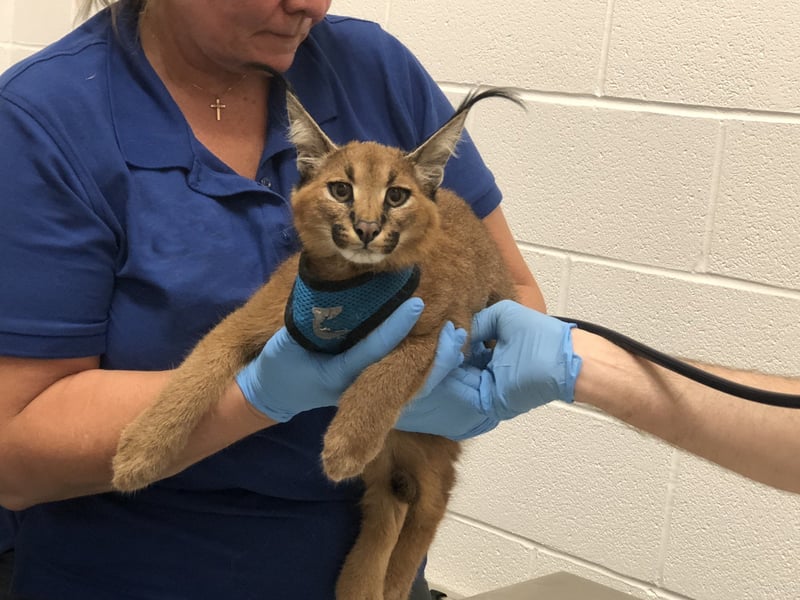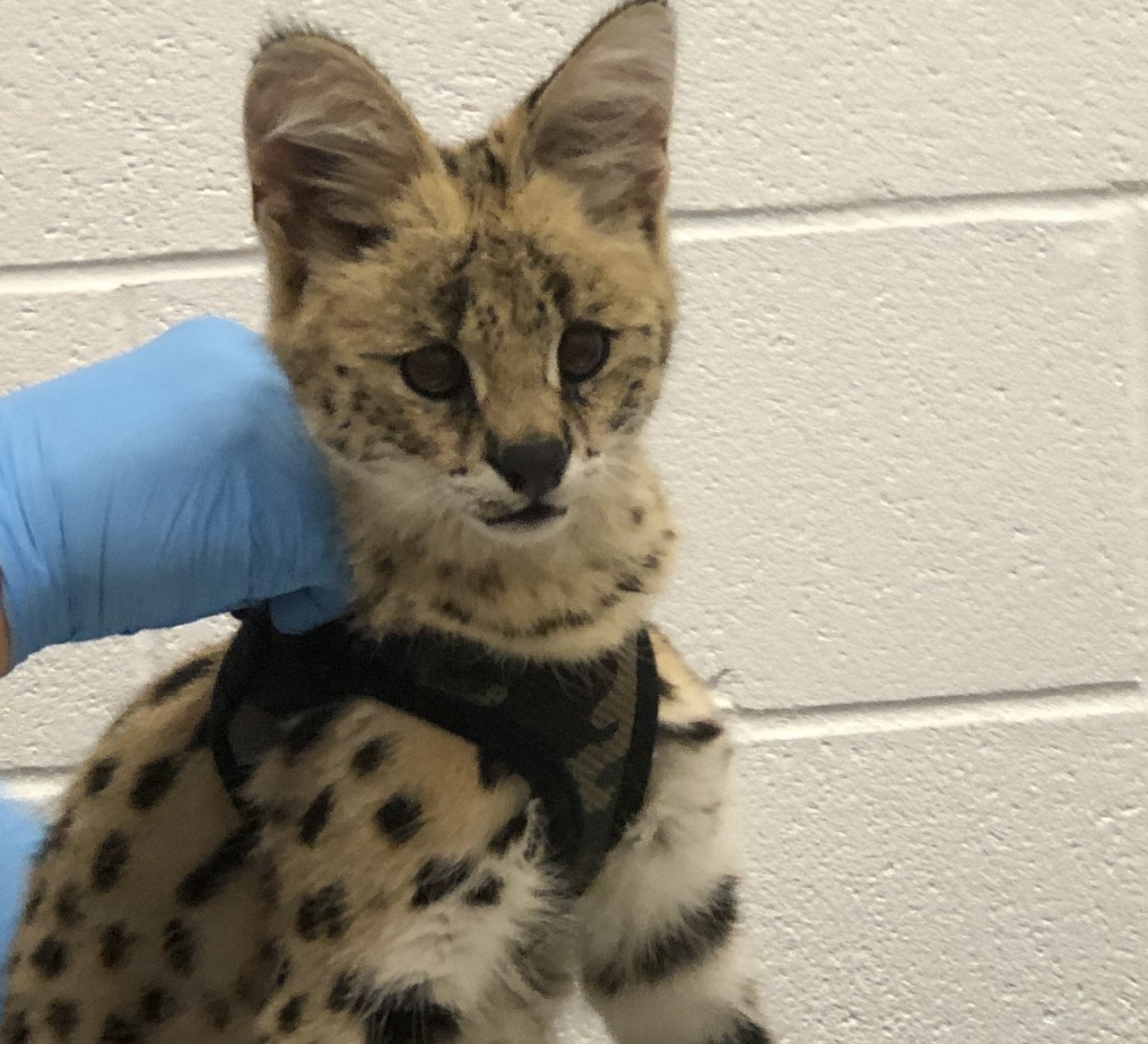
A New York man this week plead guilty to trafficking African wild cats in a case in which World Animal Protection helped arrange the rescue of the animals.
Back in June 2018, World Animal Protection was contacted by the New York Department for Environmental Conservation (DEC) regarding seven wildcats imported from a breeder in Africa to an individual outside Buffalo, NY, who intended to sell the animals as pets illegally. This is strictly prohibited under NYS Environmental Conservation Law 11-0512 which was promulgated to prohibit the possession, sale, barter, transfer, exchange, and import of wild animals as pets.
World Animal Protection helped coordinate the seizure of the four servals, two caracals, and one savannah cat because of our stance that wild animals should not be kept as pets and knowing that we could assist these animals in crisis. All the cats were malnourished. They were provided with emergency veterinary care, including one baby male serval who was given subcutaneous fluids to survive. The cats were then transported to Turpentine Creek Wildlife Refuge in Arkansas and Safe Haven Wildlife Sanctuary in Nevada.
World Animal Protection staff providing veterinary care to a female serval named Nala
Wild animals belong in the wild, not in people’s backyards, or other domestic settings. Servals and caracals are native to Africa and have natural home ranges of up to 25 square miles. They pose a danger to children and smaller animals when they can’t behave naturally and do the things that they have evolved to do in their natural habitats, like run, jump, and hunt.
Our rescue highlights some of the ignorance and greed behind keeping wild animals as exotic pets. People are not usually prepared or knowledgeable enough about what it takes to take care of these animals. Servals can live for up to 20 years. When they’re weaned from their mothers too early, as in this case, they can become malnourished. Diet is so important and will make or break one of these little cats.
Today, justice was served. But both the legal and illegal exotic pet industries continue to thrive because of people’s fascination with wildlife and desire to be close to wild animals.
Millions of wild cats and other small mammals live in people’s homes, spending their lives in cages, unable to live their best lives. Let’s keep wild animals wild. Sign to support an end to the wildlife trade.
To support our work on behalf of animals, please donate today.
